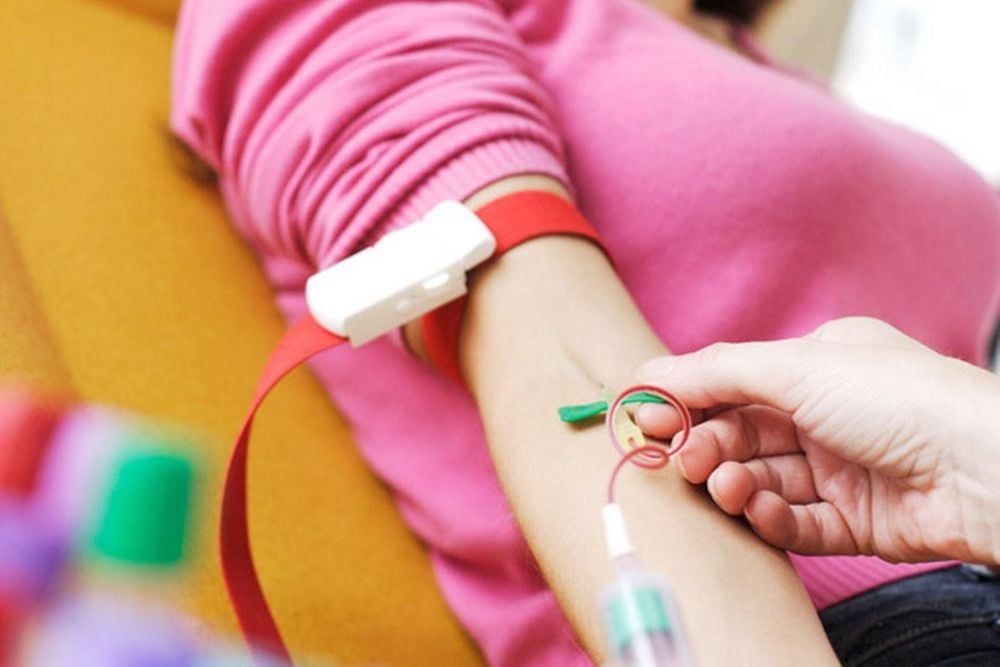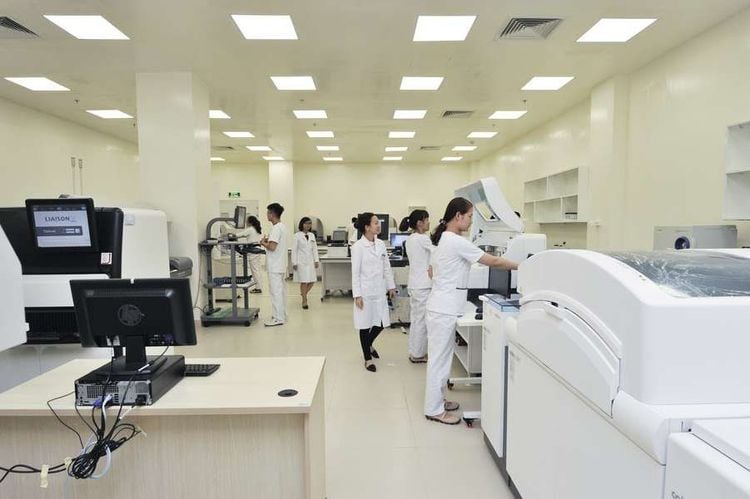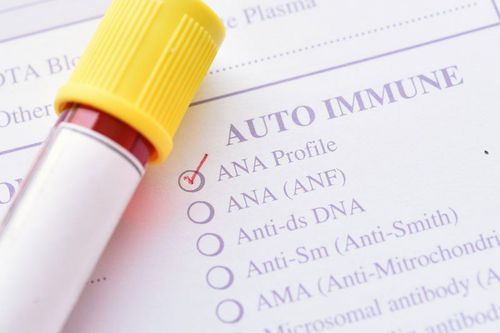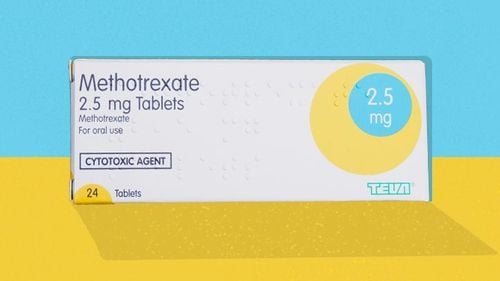This is an automatically translated article.
Autoimmune disease is one of the quite common diseases that exist under more than 180 different forms. To diagnose an autoimmune disease, a person needs to do a number of specific tests.
1. What is an autoimmune disease?
Autoimmune disease is a condition that occurs when a person's immune system is disturbed and cannot distinguish self-antigens from foreign antigens and attacks the body's own cells, thereby producing diseases. The disease is common in young people (from 20 to 40 years old), women often have autoimmune diseases more than men; The elderly and children are less susceptible.
Autoimmune diseases can progress in waves, from mild to more severe and complex. If not detected and treated in time, the disease can lead to many dangerous complications.

Kháng nguyên có vai trò quan trọng trong bệnh tự miễn
2. Diagnostic tests for autoimmune diseases
Currently, to test for autoimmune diseases, the antinuclear antibody (ANA) test is the most used technique. An antinuclear antibody test can accurately detect whether a person has an autoimmune disease, but does not identify the specific type of disease. To determine the specific type of autoimmune disease, your doctor may order additional tests to help find specific antibodies in each certain autoimmune disease.
ANA test is actually a type of test performed with the aim of quantifying antinuclear antibodies present in the blood of patients.
Antinuclear antibody testing is done through other small tests namely:
Immunochemiluminescence Enzyme-linked immunosorbent assay (or ELISA) The test results will show the concentration of antinuclear antibodies in the blood, if the result is negative, the antibody titre is low. Conversely, a positive ANA test result means that the antibody titre is elevated and the person has an autoimmune disease.
Antinuclear antibody testing can help diagnose autoimmune diseases such as:
Systemic lupus erythematosus Sjogren's syndrome Rheumatoid arthritis Polymyositis scleroderma Psoriasis

Bệnh lupus ban đỏ hệ thống
3. When should diagnostic tests for autoimmune diseases be done?
Most people wonder when to get tested for autoimmune diseases. However, you do not need to worry too much about this because usually, testing for autoimmune diseases will be ordered by the doctor if there is any doubt about the symptoms of the disease.
Most cases of autoimmune disease have vague, nonspecific symptoms. Patients can refer to some common symptoms in patients with autoimmune diseases below:
Body fatigue, mild fever, muscle pain. Hair loss, rash, photosensitivity skin Pain like arthritis occurs frequently Inflammation or damage to organs and tissues in the body, such as the heart, lungs, kidneys, endocardium , blood vessels or central nervous system .

Tóc rụng kèm phát ban, người bệnh nên đi xét nghiệm sớm
4. Test procedure to diagnose autoimmune disease
Before doing diagnostic tests, the patient does not need to prepare anything special or abstain from anything, but can eat and live as usual, taking care to avoid using stimulants (such as alcohol, tobacco, the coffee,...). However, there are certain medications that can potentially lead to false-positive test results, so patients should inform their doctor in advance about any medications or supplements they are taking.
The specimen used is venous blood. Medical staff will take 3-4ml of blood from a vein in the patient's arm and put it in a test tube containing anticoagulant, then centrifuge to get plasma / serum. The plasma/serum samples will be analyzed in the laboratory by the following techniques:
Enzyme Immunochemiluminescence Immunofluorescence Indirect

Người bệnh được lấy máu xét nghiệm chẩn đoán bệnh tự miễn
Finally, based on the test results, the doctor will evaluate the condition and advise the patient on the appropriate treatment.
Besides, there are a number of factors that can potentially affect the test results for autoimmune diseases that doctors need to consider such as:
Inefficient sampling process or poor storage of samples. The patient does not inform the doctor about the medication he is taking, some of which may cause false positive or false negative results. Patients who are infected with one of the viral diseases will cause the results to be inaccurate.
5. Instructions for viewing test results
The results of the antinuclear antibody test to diagnose autoimmune diseases can be given in 2 forms:
Negative: when the ANA index in the plasma is < 1.5 Index, it means that in the blood sample, no ANA antibodies are found in the blood sample. . If clinical symptoms are still present, the test should be repeated after 4-6 weeks. Positive: when the ANA index in the plasma is > 1.5 Index, it means that the ANA antibody is present in the blood sample.

Xét nghiệm ANA cần được thực hiện tại bệnh viện và cơ sở y tế có hệ thống máy móc hiện đại
Autoimmune diseases if not detected and treated promptly can lead to dangerous complications. Therefore, when symptoms are suspected related to autoimmune diseases, patients can go to reputable medical facilities for examination, advice and treatment as soon as possible.
Customers can directly go to Vinmec Health system nationwide to visit or contact the hotline here for support.
MORE
Common Joint Problems in Autoimmune Disease Common Autoimmune Diseases in Children What is an autoimmune disease?













